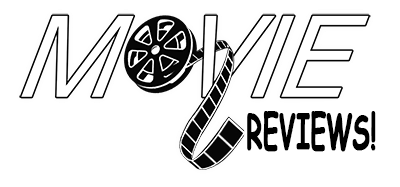 | MOVIE #1,167 •🍿🍿🍿🍿🍿🍿🍿🍿🍿🍿• 09.28.23 Europa is a stunning work of art, both from a technical perspective as well as an emotional and thematic one. The final picture in his Europa trilogy, this film easily (and immediately) ranks among his very best works. Exploring a post-war Germany through the lens of an idealistic American, Leopold Kessler (played by Jean-Marc Barr), who just wants to “show some kindness” to the people in the wake of Nazism. His naivety borders on the absurd and he’s used as a pawn by almost every other party to achieve some goal, all of which run in stark contrast to his own childlike intentions. Anchored by an unusual and unsettling second person narration (with the legend Max von Sydow as The Narrator), the use of hypnotic voice is different and effective. It can be seen as an inner monologue but not quite of this man’s volition, like a driving voice against freewill. |
On some level this might be seen as sympathetic towards Nazism, but that strikes me as reductive. This is far more complicated than any single “good vs. bad” reading. Years later of course, LVT would land in hot water for his 2011 Cannes presser “I’m a Nazi” comments, so seeing this in retrospect it would seem like there might be even more to it, but I’ll always keep striving against any easy narrative because it plainly feels like that’s what the art is beckoning we do.
This is a film about the individual’s plight in the face of giant, impenetrable forces, who will stop at nothing from seeing the individual as little more than a pawn, regardless of what side of the fence they operate from. How even a man with the purest of heart never has any agency and will always turn towards destruction in the end. How on each descending rung of the ladder we find an exponentially increasing need for normalcy, as those on the top — whose lives more or less remain unchanged — engage in psychotic behavior on whims sprung from greed and a fear of “the other,” however real or imagined.
We follow Leopold’s saga as an apprentice sleeping car conductor on the Zentropa company’s Frankfurt to Munich line. The concept of the unending train loop is in easy metaphor on so many levels: from the circuitous nature of the human urge to move forward and away, to the fascist rallying cry, itself the kind of dangerous lie that leads to societal collapse in and around the infrastructure. The film is littered with a cavalcade of tremendous performances — many of LVT’s usual suspects, like Udo Kier and Ernst-Hugo Järegård, among others — all of which seem to embody a trope or symbolic personality type (we have the femme fatale, the shameful patriarch, etc.). Lars makes a cameo himself, comically and perfectly cast as simply “Jew” — a provocateur till the bitter end.
When Leo is pushed past the brink of all sensibility, he commits an atrocious act: the heinous murder of dozens of innocents, detonating a bomb on the train as it goes over a bridge, himself among the many victims. The Narrator’s booming voice commands that in ten seconds he will drown. But it takes a lot longer than that to die from drowning. So the recitation is slow and painful. None of this misery happens or happened in an instance. The pawns are almost always the ones who push the misery in gears. But what Europa reveals is how little control they ever really had.
CHRONOLOGICALLY
⫷ MOVIE #1,166 - (YOU ARE HERE) - MOVIE #1,168 ⫸
⫷ MOVIE #1,166 - (YOU ARE HERE) - MOVIE #1,168 ⫸
Europa (known as Zentropa in North America) is a 1991 experimental psychological drama period film directed and co-written by Lars von Trier. The film is an international co-production between Denmark and five other European countries, it is von Trier's third theatrical feature film, and the third and final installment in his Europa trilogy, following The Element of Crime (1984) and Epidemic (1987). It was released on May 12, 1991.

0 comments:
Post a Comment